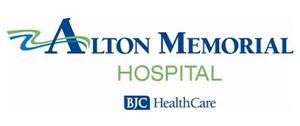
If you're like most Americans, you plan your future. Today, more and more Americans are protecting their most important asset—their brain. Are you?
Get The Latest News!
Don't miss our top stories and need-to-know news everyday in your inbox.
Stroke ranks as the fourth leading killer in the United States. A stroke can be devastating to individuals and their families, robbing them of their independence. It is the most common cause of adult disability. Each year more than 700,000 Americans have a stroke, with about 160,000 dying from stroke-related causes. Officials at the National Institute of Neurological Disorders and Stroke (NINDS) are committed to reducing that burden through biomedical research.
A stroke, or “brain attack,” occurs when blood circulation to the brain fails. Brain cells can die from decreased blood flow and the resulting lack of oxygen. There are two broad categories of stroke: those caused by a blockage of blood flow and those caused by bleeding into the brain.
A blockage of a blood vessel in the brain or neck, called an ischemic stroke, is the most frequent cause of stroke and is responsible for about 80 percent of strokes. These blockages stem from three conditions: the formation of a clot within a blood vessel of the brain or neck, called thrombosis; the movement of a clot from another part of the body such as the heart to the brain, called embolism; or a severe narrowing of an artery in or leading to the brain, called stenosis. Bleeding into the brain or the spaces surrounding the brain causes the second type of stroke, called hemorrhagic stroke.
Stephanie Watson is the stroke program coordinator at Alton Memorial Hospital. For more information about stroke, contact Stephanie at 618-463-7514.
Signs of a stroke
- Sudden numbness or weakness of face, arm, or leg, especially on one side of the body
- Sudden confusion, or trouble talking or understanding speech
- Sudden trouble seeing in one or both eyes
- Sudden trouble walking, dizziness, or loss of balance or coordination
- Sudden severe headache with no known cause
Inherent stroke risk factors
- Age. Stroke occurs in all age groups. Studies show the risk of stroke doubles for each decade between the ages of 55 and 85. But strokes also can occur in childhood or adolescence.
- Gender. Men have a higher risk for stroke, but more women die from stroke. Men generally do not live as long as women, so men are usually younger when they have their strokes and therefore have a higher rate of survival.
- Race. People from certain ethnic groups have a higher risk of stroke. For African Americans, stroke is more common and more deadly—even in young and middle-aged adults—than for any ethnic or other racial group in the United States.
- Family history of stroke. Stroke seems to run in some families. Several factors may contribute to familial stroke. Members of a family might have a genetic tendency for stroke risk factors, such as an inherited predisposition for high blood pressure (hypertension) or diabetes. The influence of a common lifestyle among family members also could contribute to familial stroke.
Treatable risk factors
- High blood pressure, or hypertension.
- Cigarette smoking.
- Heart disease.
- Warning signs or history of TIA or stroke.
- Diabetes.
- Cholesterol imbalance. Low-density lipoprotein cholesterol (LDL) carries cholesterol (a fatty substance) through the blood and delivers it to cells. Excess LDL can cause cholesterol to build up in blood vessels, leading to atherosclerosis. Atherosclerosis is the major cause of blood vessel narrowing, leading to both heart attack and stroke.
- Physical inactivity and obesity.
More like this:
